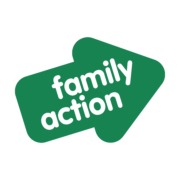Our FamilyLine service share top tips intended to ease the burden of the increased cost of living.
FamilyLine staff speak to families facing a range of challenges every day. In a separate article we’ve outlined some of the current pressures that families have shared with them, but they also noted that there are some pieces of advice that come up in conversation time and again, that are useful for many families struggling with the increased cost of living.Here we share some of this advice with you.
Check your benefits
One of the problems of the complex world we live in is that we may not even realise the benefits we’re entitled to. A good way to check that you’re not missing out on money or support is to use the free benefits calculator on the website of the charity Turn2us.
Prevention is better than cure
Our FamilyLine staff find that often people come to them when they’re in crisis, but the service may have been able to help them in a better way if they got in touch sooner. This is understandable when people feel like they’re out of options and don’t want to admit they’re struggling, but if you do it might mean that you can do more about your problems. A good rule is to think that waiting will almost always make problems related to debt worse.
What to do if you can address problems early
A lot of us bury our heads in the sand when it comes to household debt but often contacting companies we owe money to in advance can lead to better resolutions. Agreements can be reached where companies will accept a lesser payment if they realise that otherwise they’re unlikely to receive a payment at all, for example. There is great advice regarding how to approach services regarding debt, housing and more at Citizens Advice and the charity Step Change and Shelter provides really useful advice for those who’re worried they might lose their home.
Check your local authority’s website
Every local authority is different and many run welfare assistance programmes at their own discretion. It’s definitely worth heading to your local authority’s website to try and find out what they offer. Finding help might be tricky, but we would recommend starting using the word “support” in their search bar. At the very least you should be able to find a number to call. Remember that councils are huge places with hundreds of employees so even if you’ve had a bad experience with one department that doesn’t mean someone else won’t help you.
Repair is often free
The cost of replacing electrical items can soon add up, but luckily modern concern about things like the environment has led to a rise in local clinics where people will repair broken items for free or minimal cost. These are often funded on a ‘pay what you can afford’ basis and can be found in local community spaces, which leads us to…
Take a walk around your local area
Some of the most valuable resources – such as food banks, food clubs, free repair services and clothes exchanges – are found in local community spaces, churches and cafes, and the people volunteering or working there are often great sources of local knowledge. If you’re embarrassed about asking for help you can always enquire “for a friend”. Getting out into the real world is also important for your mental health, can prevent worries from escalating, and can also result in meeting people who are best placed to help.
Shop at charity shops
The rise of online auction and vintage clothing apps and services has taken much of the stigma away from shopping in charity shops, but the bargains remain. Charity shops are particularly good for children’s clothing, which people tend to donate once their children are older and it no longer fits, but can be too time-consuming for them to try and sell for profit.
Shop lower shelf
It’s a simple point but own brand goods in supermarkets are usually just as good as their branded counterparts, and all the savings add up.
If things are tough heat yourself and not your home
These are unusual times requiring unusual solutions, and it might be that if you live on your own or have a predictable working pattern you can save money by heating just one room or even just yourself with a heated blanket. The website Money Saving Expert has produced a comprehensive guide to this here.
Check on your neighbours
Ok, this isn’t advice to save money but if COVID taught us anything it’s that community is incredibly valuable, and we can often help each other in unexpected ways. By checking our neighbours are ok and discussing concerns we open communication channels for things like providing support and even sharing food and clothing.
Save on food
We run our Food on Our Doorstep (FOOD) programme in several locations nationwide which provides cheap access to food for a one-off £1 subscription. You can then purchase a bag of food items worth £10-£15 each week for £3.50.
We recognise that even this cost might be too much, however. If this is the case you can visit Citizens Advice to look into accessing a food bank. Tthe charity scope has also produced a really useful guide outlining other free sources of food.








